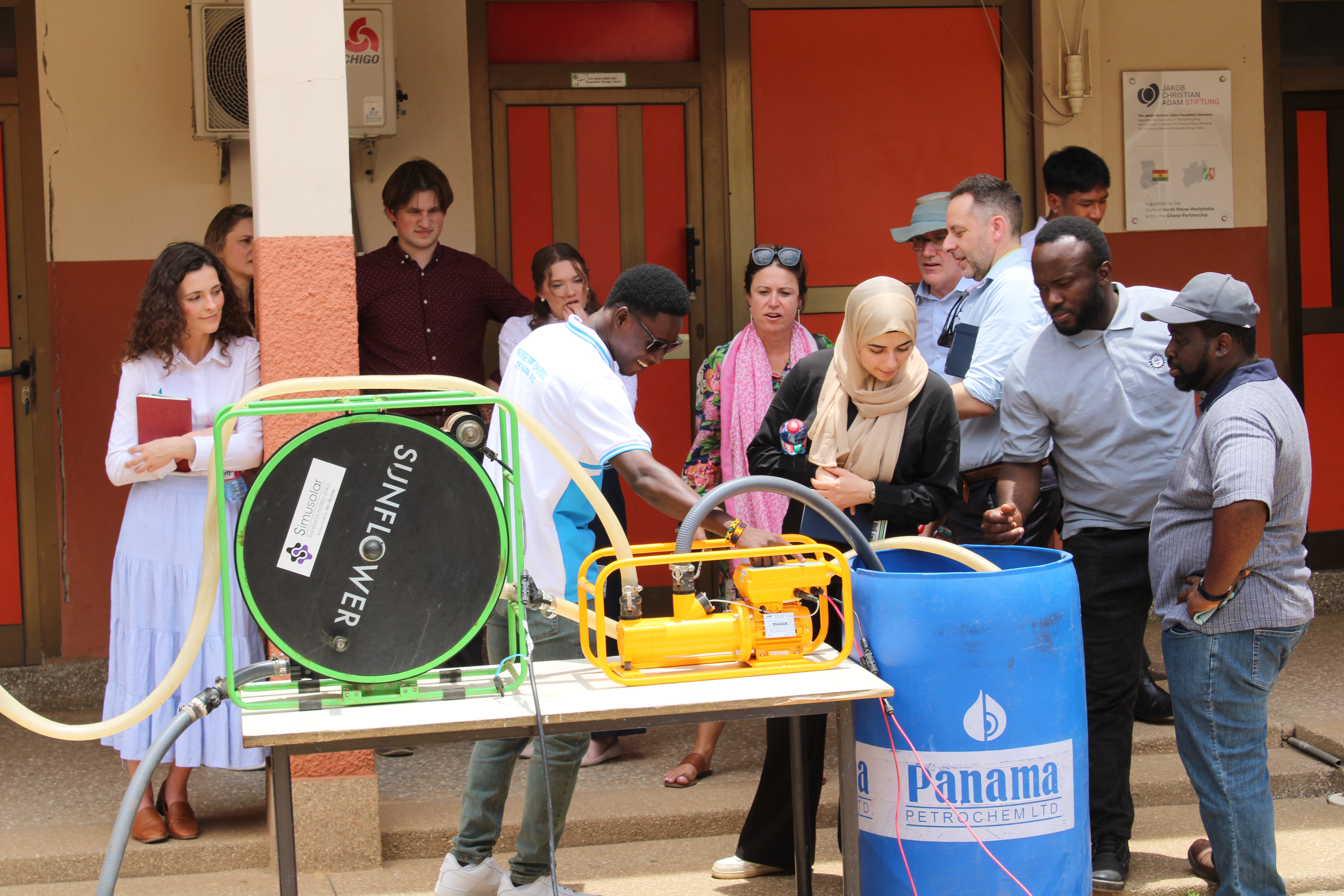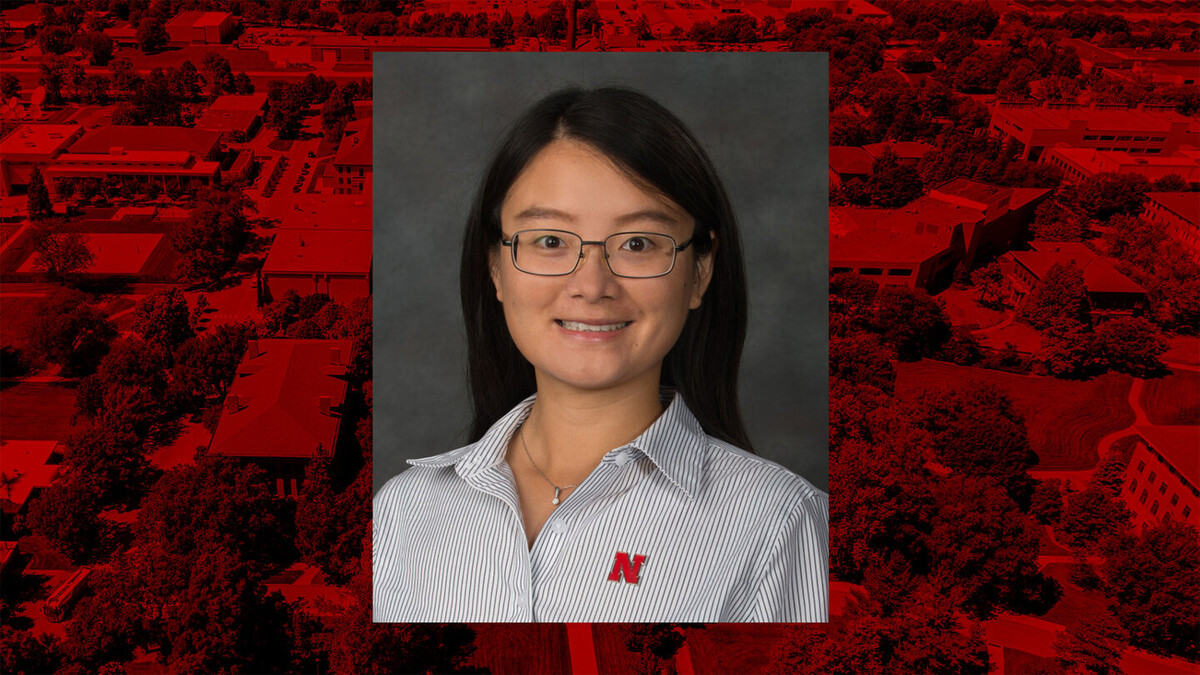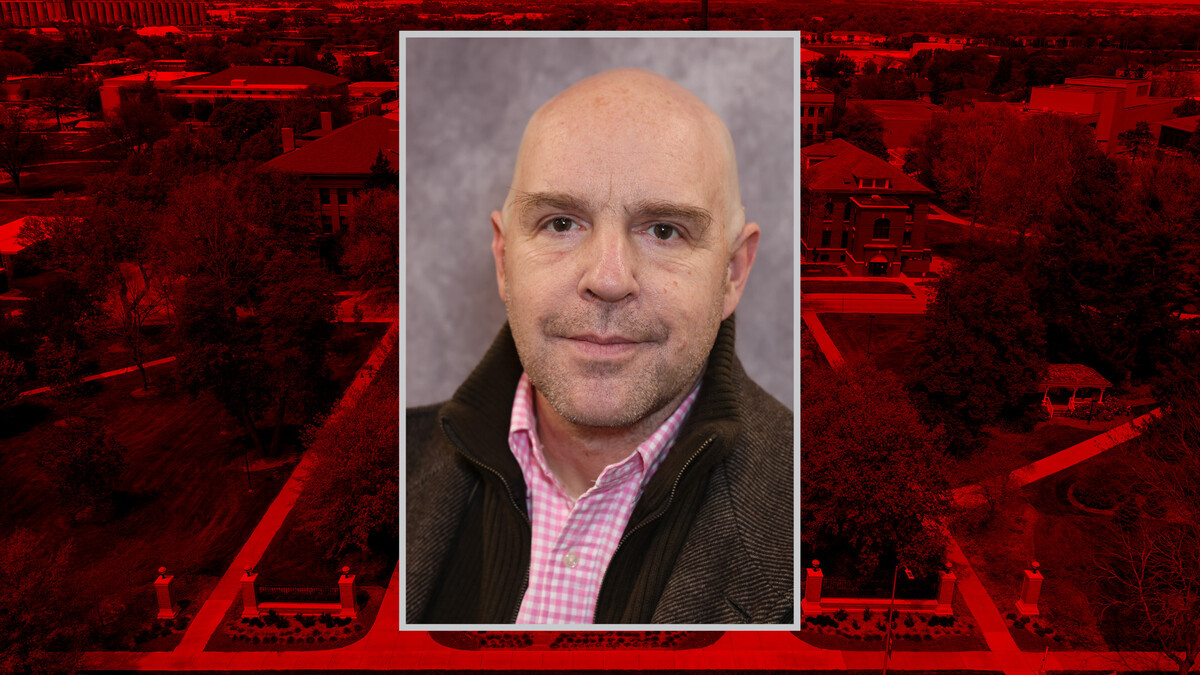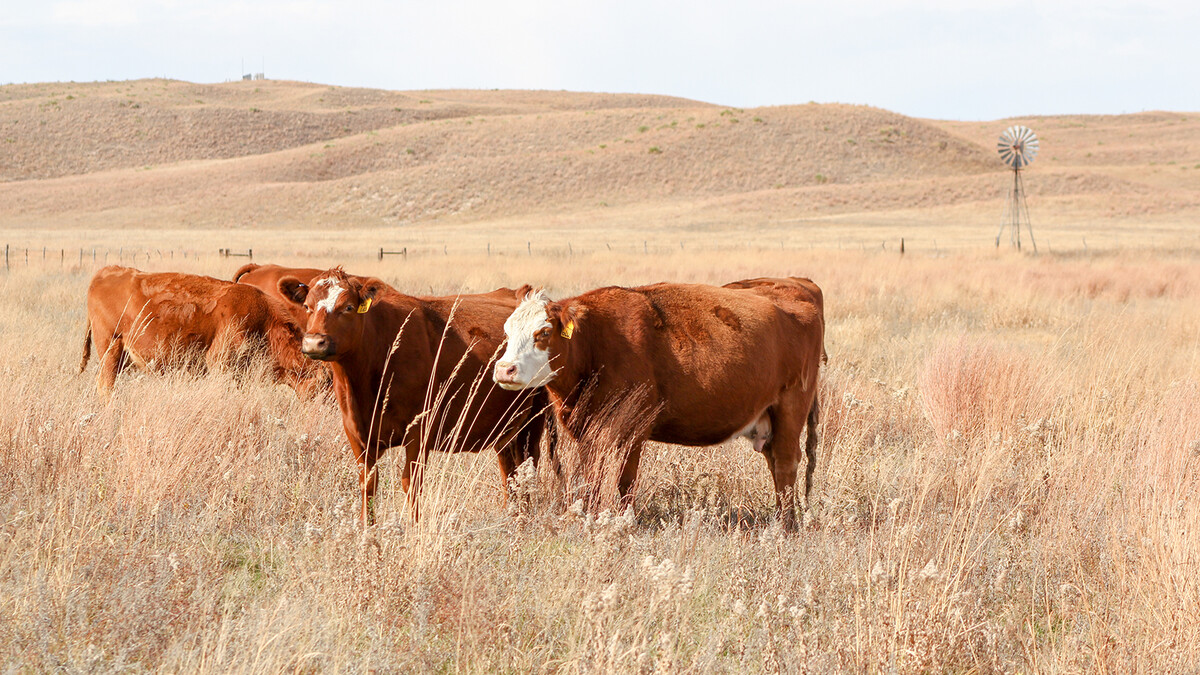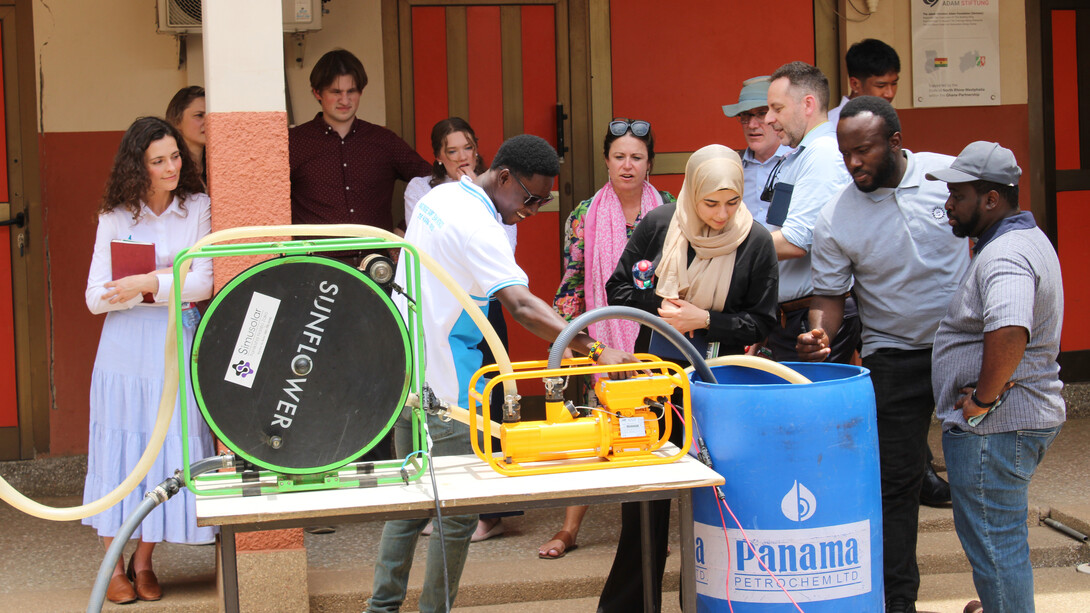
When the Yeutter Student Fellows were tasked with researching how an irrigation company could best position itself to help meet the irrigation needs of the African continent, they knew they faced a challenging task. What they did not know was that their research would take them on an immersive experience to Ghana, exploring irrigation potential firsthand.
The University of Nebraska’s Daugherty Water for Food Global Institute and the University of Nebraska–Lincoln’s Clayton Yeutter Institute of International Trade and Finance partnered to provide the fellows with a spring break trip that offered insight into the research project and enriched the students’ personal and professional development.
The students’ trip illustrated what the global institute and Nebraska-based irrigation company Valmont Industries, a longtime Water for Food partner, have long seen from their worldwide activities: understanding agricultural and environmental conditions abroad yields insights and innovations that help ag producers and decision-makers in Nebraska.
Initiated in 2020, the Yeutter Student Fellows program helps undergraduate students prepare for a variety of career paths in international trade policy. Through a competitive process, four students are selected each year based on their curiosity, motivation, resourcefulness and interest in international trade. This year’s cohort consisted of Zanib Al Razaq, Lexi Bodlak, Matthew Gillespie and Ethan Zen.
Forming a cohort for one academic year, the students focus on building critical thinking, teamwork, writing and oral presentation skills through trade policy discussions with outside experts, in addition to completing a team project for an external corporate partner. The Yeutter Institute has partnered with Valmont for the past three years.
Due to their depth of expertise on agricultural water resource management across the globe, the Daugherty Water for Food Global Institute was the Yeutter Institute’s first stop in finding experts to inform the fellows on irrigation utilization across Africa. The global institute provided expert briefings on Ghana’s history, culture, economy, agriculture and water resources, and an invitation to take an experiential learning trip to the country.
“One of our institute’s key goals is to develop the next generation of water and food leaders,” said Nick Brozović, director of policy with the global institute. “In Ghana, we connected the Yeutter Student Fellows with our partners representing many different elements of agricultural value chains. Being able to travel alongside, and learn with, some of the best UNL students was a wonderful opportunity.”
As the trip to Ghana approached, the focus of the research project became clear. The fellows began to delve into Ghana’s social, economic, political and agro-ecological landscapes, gradually gaining an understanding of how all these disciplines shape the feasibility of irrigation in such contexts.
“The trip to Ghana made our Valmont project feel real,” said Al Razaq, a junior economics and Spanish major. “Meeting farmers and seeing the impact of irrigation firsthand helped me better understand the importance of our work and approach it with more care and purpose.”
During the trip, students engaged with key players across Ghana’s agricultural value chain — from smallholder and commercial farmers to government agencies, ag-tech companies, consultants and water management researchers. They visited fields and held meaningful discussions around food and water security with local experts.
“Having studied and researched in different African countries in the past, I have always enjoyed swapping farming stories and learning from the farmers I visit,” said Cheyenne Gerlach, assistant director of the Yeutter Institute, who grew up on a hog farm near Dewitt, Nebraska. “Growing food for your community is a kind of universal language, and watching the fellows engage with it and relate it to Nebraskan agriculture was invaluable.”
The insights gained during the Ghana study trip were used to inform the students’ recently completed research project for Valmont. The students’ illustrated journey can be viewed here.
“I’m looking forward to meeting with all the partners, now that the project is completed, and discussing pathways for developing similar opportunities for UNL students in the future,” said Renata Rimšaitė, senior program manager with the global institute.
